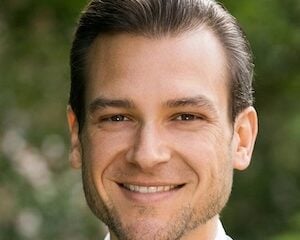Ex-NBC news exec will manage WNET
Neal Shapiro, president of NBC News until 16 months ago, will succeed William Baker as president and c.e.o. of New York’s WNET.
Shapiro, 48, a 25-year veteran of network news who ran NBC’s Dateline before heading NBC’s global news operations, will assume one of Baker’s titles next month, serving for a year as president while Baker remains c.e.o. Baker will relinquish the chief exec role next February, becoming president emeritus.
The board of the Educational Broadcasting Corp., licensee of both WNET and WLIW in Long Island, unanimously approved the transition plan on Jan. 18, ending a year-long executive recruitment process that began as a search to replace Paula Kerger, former c.o.o., who left WNET to become PBS president last March.
“As we did the search I realized that, ultimately, this person has to be capable of replacing me,” said Baker. “That raised the ante a bit.” Candidates with qualifications to helm the station, he said, “wouldn’t want to wait around 10 years” for his retirement.
“I will turn 65 next year and I ran this place for 20 years,” Baker said. “There are a million things that I want to do.” He is writing a book and hopes to produce some programs for public TV. His role as president emeritus won’t be honorific, Baker said. “It will be a real job.”
Baker agreed with members of the board’s search committee and new EBC Chairman James Tisch that “the future of public television is in content” and “we had to have a significant content person,” Baker said. “If we have good content, the money will flow.”
“We were looking for someone who first and foremost could run Thirteen,” Tisch said, referring to WNET by its local brand identity. After interviewing candidates with various qualifications in media, “there was no doubt by anybody on the committee that Neal was the ideal candidate.” Shapiro’s programming experience and his belief in public TV’s mission distinguished him among candidates for the job.
“He believes in what we’re trying to accomplish and sees tremendous potential and possibilities for public television in general and Thirteen in particular,” Tisch said.
The realm of content is “like a fashion business,” Tisch said. “To some extent, you’ve got to lead the public and, to another extent, give the public what they want. Neal understands that very well and understands what’s involved in telling a story. He will be a very powerful force in the content area.”
Shapiro, who departed NBC in September 2005, led the network’s news division for four years as it covered 9/11, wars in Afghanistan and Iraq, the 2004 general election and Hurricane Katrina.
He is credited for leading NBC Nightly News through a smooth anchor transition, replacing Tom Brokaw with Brian Williams in December 2004. As head of the news division, Shapiro also supervised cable news channel MSNBC and oversaw changes to MSNBC.com.
From 1993 to 2001 Shapiro was e.p. of Dateline NBC, taking the helm to restore its credibility after flaws were found in its investigation of exploding fuel tanks on General Motors pickups. He presided over its expansion into a multinight franchise delivering—at its high point in 1999—five hours of programming each week.
Shapiro began his television news career at ABC in 1980. He is married to JuJu Chang, a correspondent for ABC’s 20/20. The couple have two sons, ages 6 and 3.
“I’m a news guy in the sense that I can read every section in the paper and be enthusiastic about each one of them,” Shapiro said. “I like to think of news in the broadest possible sense,” to include breaking stories, long-term coverage, lifestyle features and stories on sociology.
Just as Baker came to recognize the need to recruit his own successor, Shapiro gradually warmed to the prospect of working in public TV. He hadn’t considered working in noncommercial media until he was approached by a search firm about the WNET position, Shapiro said. Each subsequent meeting with Baker, members of his management team and board trustees “got me more jazzed about it.”
“Their sense of mission is kind of overpowering and it reminded me of why I got into the news business,” Shapiro said. He sees opportunities to bring his programming expertise to national and local pubTV programs.
“As successful as Channel 13 is, everyone agrees there is still room to innovate and to change,” Shapiro said. “I think it’s interesting to take something and change it and mold it and make it better than it is. The status quo is rather boring.”
Television, he said, will evolve rapidly as viewers learn to experience it differently—on big screens and tiny ones; as immediate, live events and as programs they discover months after release. “Public broadcasting is going to have to react to that reality as the rest of television is,” Shapiro said.
“Public television, like all broadcast media, is going to go through a period of significant technological change,” Tisch said. “I don’t think everybody knows the answers—or even all the questions— yet. Neal understands the issues and the medium and is supremely capable of leading our way through them.”
Leaving is ‘exciting and bittersweet’
For Baker, the coming transition is both exciting and bittersweet, he said. “I have put 21 years of my life into this place,” Baker said. “It is something I love and I have sacrificially put myself into it.”
“My legacy is—I want the place to go on even better than it was with me here,” Baker said. In a decision that was important to him, Baker said, he supported Shapiro’s selection.
Baker, the fifth president and the second commercial broadcaster to lead WNET, brought his experience as a top Westinghouse Broadcasting executive to the station in 1987 and steered New York station through two decades of financial growth and expansion. When he arrived, Baker recalled, WNET operated one broadcast channel, was $10 million in debt and had an operating deficit of $7 million.
He departs after building an endowment of nearly $100 million and extending WNET’s reach onto other media platforms and other markets.
After years of negotiations in the late 1990s, Baker led the nonprofit through a merger with WLIW, a smaller rival based on Long Island that had competed fiercely for local viewers and donors. The merger, sparked by a CPB initiative to build ties between stations with overlapping signals, was unprecedented among major-market public TV stations and allowed the former competitors to pool their resources as they built out digital broadcast facilities and services.
In 2005, WNET bid for the license of WXEL in West Palm Beach, Fla., a station that was put up for sale by its university licensee. The license transfer, now pending before the FCC, will bring upgrades in pubTV services delivered to the Florida community, including its winter population of migrating New Yorkers.
In a collaboration led by Kerger and Jon Abbott—station fundraisers who were then the No. 2 execs running WNET and Boston’s WGBH, respectively — the stations jointly developed two new digital multicast channels, Create and World. Create is now carried by 166 stations and World is slated to go national in July. On its own, WNET also developed a Spanish-language multicast channel that soon will be offered to other stations. Initially known as Viva TV, the channel now has the name V-me—meaning “watch me” or “see me,” according to Carmen DiRienzo, WNET v.p. of corporate affairs, who is directing the channel’s development.
Although economic booms and busts periodically fueled or curtailed WNET’s national production output, the station introduced an eclectic mix of new series—from Religion and Ethics Newsweekly to Egg the Arts Show, Secrets of the Dead and Wide Angle. It continues to deliver signature PBS titles Nature, Great Performances and American Masters and high-impact limited series such as Broadway: The American Musical and Slavery and the Making of America.





